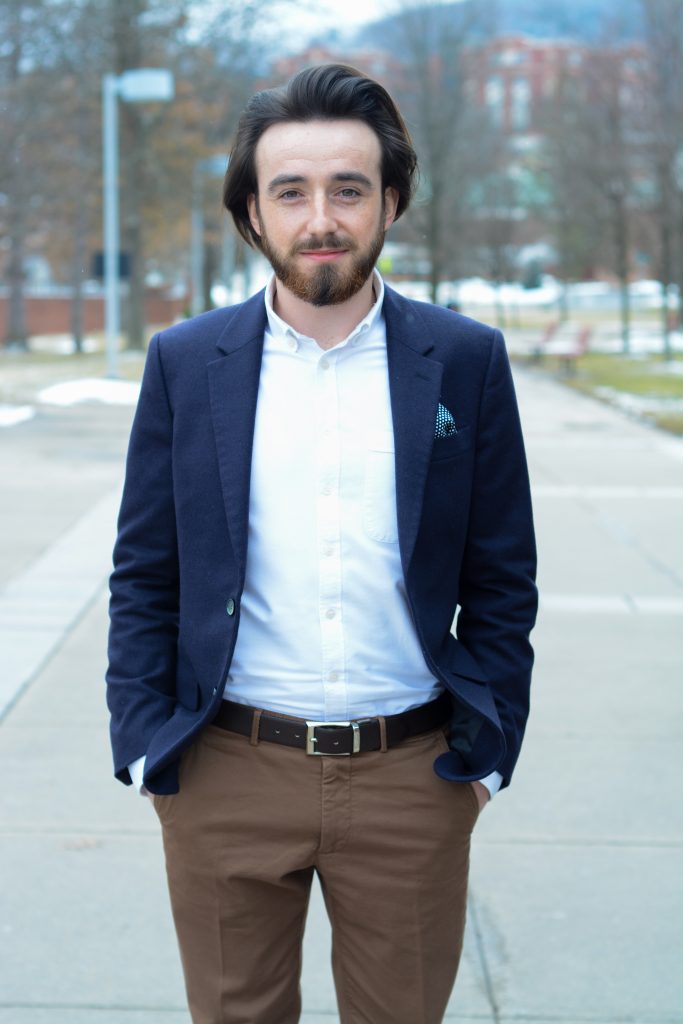
Pipe Dream sat down with Andrew Foley, development director of Better Days Greece, a non-governmental organization (NGO) that supports refugees in Greece. His TEDxBinghamtonUniversity talk, “The Capital T Truth of Education,” focuses on the foundation of education and how we interpret it. This interview has been edited for length and clarity.
Pipe Dream: How did you get involved with aiding refugees in Greece?
Andrew Foley: I had been living in Los Angeles, and I came home for Christmas and I kind of caught wind of the European refugee crisis. I wasn’t aware of the number of refugees coming through Greece. I had always wanted to volunteer and support, never in an international crisis, but at home in soup kitchens, helping the homeless. But I never had the time at home; I was just kind of focused on my career. So when I saw this, I was like, ‘Well now is a perfect time to offer whatever support I can,’ so I went to Greece to volunteer for three weeks. That was in 2016 and I never left. I kept deferring going back to work and then eventually I said, ‘I’m not coming back.’ I set up an NGO and that’s how I got started.
PD: What is your NGO and what does it do?
AF: The NGO is Better Days Greece. It’s a Swiss-Greek registered NGO. We’re based in Lesbos, which is an island in Greece just off the Turkish coast. It’s the epicenter of migration into Europe. We started off doing emergency response. There were thousands of people every day just arriving on beaches, shocked, cold and not really knowing where they were. So we started providing food, medical [attention], information and shelter. At the time, it was just all transit — so people were coming to Greece and going to Germany. Then, we went and built another camp, [and] there was a big policy decision in Europe, the EU-Turkey deal, and there was a lot of change on the island. So we went and built an accommodation center, where we housed 200 vulnerable families in the north of Greece. And then we returned to Lesbos to do education. Now, we have two schools and we educate 400 kids a day. We work every day to provide the best quality education for every student.
PD: What is your TED talk about?
AF: My TED talk is about the truth of education. It’s built on the idea that we talk about education as being this thing that can deliver people from poverty, or can empower communities or can change people’s lives. But it’s kind of become a cliché. What I’m trying to get at is the essence of why that is the case, why education can be the most powerful vehicle for positive change. It’s kind of getting at the truth about why education is so important and what we mean by education, because so often when people say education in Greece for refugee kids, what they mean is Greek class. I don’t believe that offering kids Greek is education. I think that’s such a narrow definition of education and we need to work to broaden our curriculums and give access to not only language but to art, and to science and to sports.
PD: How did your work inspire your talk?
AF: The TED talk is our work, this is what we work every day to do. I take for granted that education is incredibly important. I think of course it’s important and I don’t think anybody should challenge that, but really digging down to the essence of why it is important is, I think, something we don’t talk about enough and I think that’s why we forget that music and art and theatre are so important, because we forget why education is important. Education has just become acquiring knowledge across this very, very narrow spectrum of subjects. That’s where it came from, why do we do what we do, why do we do education in the manner that we do it.
Editor’s note: Better Days Greece was founded by Anrika Velychko and Elena Moustaka. Foley is not a founder of the nonprofit, however, he works there as a development director.


